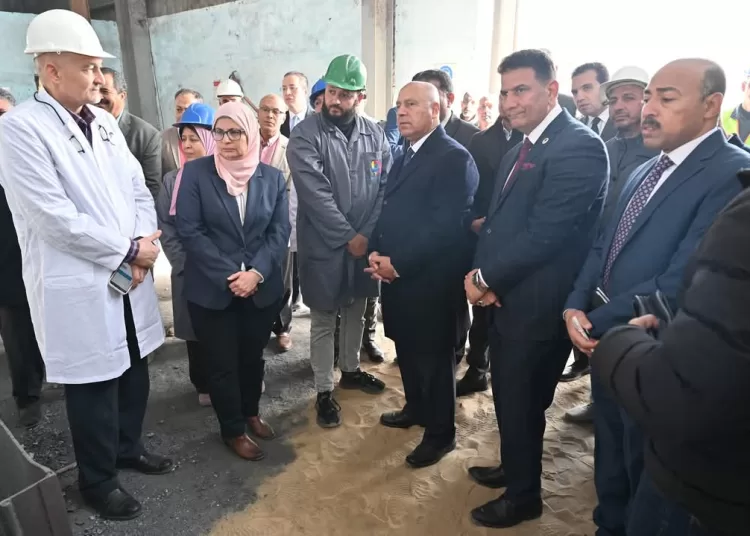Deputy Prime Minister for Industrial Development and Minister of Industry and Transport Lieutenant General Engineer Kamel El-Wazir paid an inspection visit yesterday to El Nasr Casting Company, to follow up on the work progress there.
Specialising in manufacturing ductile iron pipes and accessories critical for drinking water and sewage networks, the company resumed activity on November 18, following a two-year hiatus.
During the follow-up visit, the minister inspected production lines across the company’s facilities, starting with the ductile iron pipe factory, which produces pipes ranging from 100 mm to 1000 mm in diameter.
The factory operates under ISO 2531 and European EN545 standards and holds ISO 9001 and Environmental Management Standard 14001 certifications.
The production capacity is gradually increasing through ongoing maintenance, aiming to reach the factory’s design capacity of 47,000 tons annually. Notably, the factory produces five pipe diameters (250, 350, 450, 900, and 1000 mm), unique in Egypt, the ministry said in a statement.
Minister El Wazir also inspected the roll factory, which produces wheat grinding rolls (Buhler), flexible cast iron rolls for steel rolling, and ferrosilicon magnesium alloy (5%-10% Mg). This alloy, with a design capacity of 960 tons annually, is crucial for domestic industrial applications and helps reduce reliance on imports. Additionally, the factory produces 150 tons of rolls annually.
During the tour, the minister was offered a presentation that highlighted the operations of the high-quality casting factory in Alexandria, specialising in butterfly and knife valves (65 mm to 1800 mm), as well as small flexible cast iron pipe fittings. This factory, with an annual capacity of 4,200 tons, produces railway brakes, mooring candles for ports, and decorative lighting columns.
Since mid-November, the company has undertaken significant steps to restore its operations. These include securing scrap metal through the Egyptian Railways Authority, performing maintenance on furnaces and water stations, and ensuring the supply of natural gas.






Discussion about this post